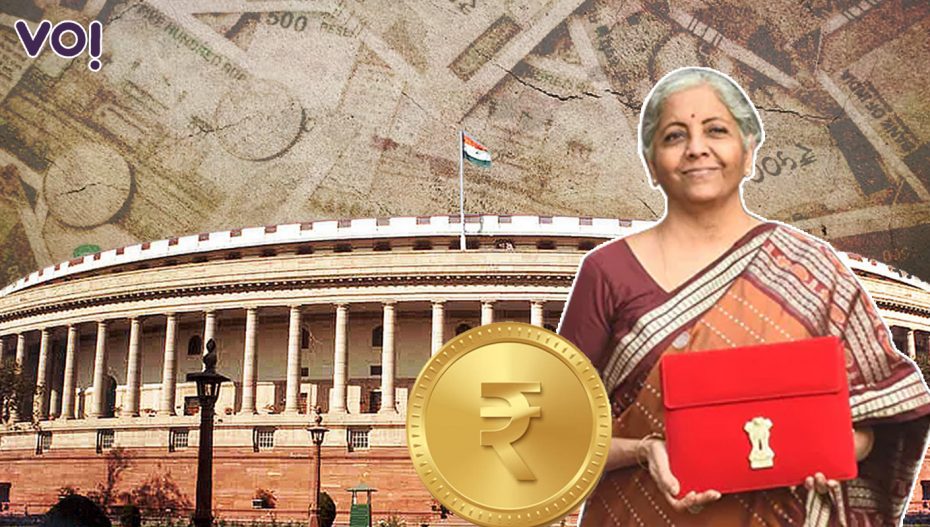Union Minister Nirmala Sitharaman’s Budget for 2022-23 may have factored in the need to create a dynamic digital infrastructure in the education sector, but experts say that it woefully falls short of the challenge that the sledgehammer impact the Covid-19 crisis has had on the sector for the last two years.
The education sector has been allocated a budget of Rs 1,04,278 crore for FY2022-23. While this sure is an increase of 11.19% from Rs 93,224 crore in FY22, the sector only constitutes 9.76% of the total Union Budge1qt 2022-23. This was 11.09% in the previous year. Last year, the education budget was slashed by 6% following the pandemic.

Yoginder K Alagh, Economist and former Union Minister:
There is enough discussion for new development, even redevelopment programs but the consolidated education sector – universities and private schools have been blatantly ignored for long-term strategies. There have to be facilities for the education of girl child born in this year. We have to plan right now for these facilities to be available in the time they will be eligible for studies. We have unfortunately put a halt to the planning commission.
Long-term plans for skill development, drone development, and several such are put forth but the conventional problems such as – girls’ participation in education, teachers’ housing problems in rural areas – have not been addressed.
The adverse effects of the Covid-19 pandemic and even the Chikungunya spread on the education sector during the last two years have not even been referred, leave alone addressing the issue.
Prof Hemant Kumar Shah, Economist:
The budgetary allocation on education for FY2022-23 is Rs 1.04 lakh crore, which is only 2.63% of the total budget of Rs 39.45 lakh crore. According to the revised estimates, the budget for the current year (2021-22) is Rs 37.70 lakh crore and the expenditure on education is Rs 88,000 crore. Interestingly, the cost of education for the current year was estimated at Rs 93,000 crore and the expenditure was reduced by Rs 5,000 crore. Now, the increase is Rs 16,000 crore. But it is doubtful whether such an increase will actually take place. This is because the expenditure was estimated at Rs 99,000 crore in 2020-21 and the actual expenditure is only Rs 84,000 crore.
The New Education Policy announced by the government in 2020 has set a target of spending 6% of GDP. Then came a budget of 2021-22 but it did not show any such commitment. The same negligence has been repeated in this budget.
If GDP is to grow at more than 8% next year, it will be around Rs 250 lakh crore. If only Rs 1.04 lakh crore is spent on education, it will be only 0.4 per cent of GDP! This means that if the budget does not bear fruit as per the policy, then what is the point of saying how much will be spent on education policy? The new education policy does not specify how much the central and state governments will spend. But even if the central government spends about two per cent of GDP, it can force state governments to spend about four per cent of their GDP. But this has not happened in this budget.
The estimated expenditure of Rs 1.04 lakh crore will be Rs 63,449 crore for school education and literacy and Rs 40,810 crore for higher education. Given the high school dropout rate due to the Covid-19 pandemic, these costs are not enough. It is clear that education is nowhere near the priority of the central government.
Dr Mona Lisa Bal, Chairperson, KiiT International School:
The Union Budget 2022 announced today was a hit and miss for the education sector. While it has finally addressed and recognized the learning loss the pandemic has created, the need to develop the digital infrastructure of the country was not adequately focused on the budget.
The economically disadvantaged students especially in rural areas have lost essential years of education and the introduction of supplementary teachers was highly necessary. Supplementary education can help bridge the gap to a large extent.
The increase of ‘One Class One TV Channel’ from 12 to 200 TV Channels to provide supplementary education in regional languages for classes 1-12 is a welcome move but it will not be enough. It is important that we adapt our education system, pedagogies, and assessments according to the changing times. Upskilling is the need of the hour. Thus, the launch of the Digital DESH e-portal for skilling, upskilling and reskilling will be key to adapting to the shifting dynamics of our present.
Setting up virtual labs and skilling e-labs will be valuable in developing critical thinking amongst students. Access to high-quality e-content can help enhance the quality of education received by students. Making this accessible in regional languages additionally is a positive step towards a wholesome education.
The development of a digital university to provide access to students for world-class quality education with ISTE Standards will be beneficial in the long run by making education available for a wider audience through the power of the internet. However, the much-needed increase in budget allotment for the education sector was missed. Further constructive measures towards digitization and resuming physical classes are needed.
Amit Dholakia, Professor of Political Science, MS University Baroda:
It is heartening that instead of investing in brick-and-mortar structures, this budget has allocated substantial resources for digital university, virtual labs for skill development and development of e-content. This will promote equity and access in education and help improve quality too.

















